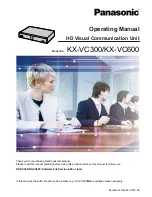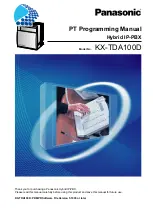
Frequently Asked Questions
Telephony
182
An ISDN telephone always rings, if another telephone on the S
0
bus is being
called.
This case also requires configuring the MSN on the ISDN telephone (see above
answer).
It is not possible to configure Call Distribution: Outgoing for multi-terminal
access.
You have configured multi-terminal access and system access in parallel. All out-
going calls are therefore established via system access, and outgoing call distri-
bution can be configured for system access only (
Configurator
,
Call Distribution
menu).
A specific MSN can be seized for individual calls by means of a code number pro-
cedure. For further information, refer to the “OpenCom 100, Operation on
Standard Terminals”user guide.
What are some of the causes for problems when sending and/or receiving fa-
xes?
In frequent cases, the reason may be found in a problem with the ISDN-L1 refe-
rence clock distribution. The L1 clock is delivered from the network provider. An
unclean L1 clock distribution and the introduced signalling jitter is overheard by
the human ear. Nevertheless, data and fax transmissions may be disturbed by the
jitter. Please check, which ISDN lines will deliver the L1 clock. Details can be found
under
L1 Clock
starting on page 129.
The fax data transfer possibly is routed via a compressing VoIP connection. Please
verify, if the a/b port is configured with the “Fax” setting. For the VoIP connection,
select a VoIP profile which includes the non-compressing G.711 codec.
Summary of Contents for OpenCom 130
Page 1: ...130 OpenCom100 131 150 Mounting and Commissioning User Guide ...
Page 10: ...8 ...
Page 202: ...Index 200 Notes ...
Page 203: ......
















































